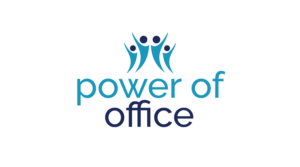Human Resources (HR) is the backbone of any successful organization. From hiring the right talent to fostering a healthy workplace culture and ensuring compliance with labor laws, HR plays a vital role in business growth and employee satisfaction.
However, managing all aspects of HR can be complex and time-consuming, especially for small and mid-sized businesses. That’s where a complete HR solution comes in — a comprehensive, integrated approach that streamlines and simplifies every HR function under one roof.
What Is a Complete HR Solution?
A complete HR solution refers to a unified platform or service that manages the full lifecycle of an employee within an organization. This includes recruitment, onboarding, payroll, benefits administration, performance management, compliance, employee engagement, and offboarding. Instead of juggling multiple tools or departments, companies can rely on a single system that integrates these functions efficiently.
These solutions may come in the form of Human Resource Information Systems (HRIS), cloud-based platforms, or fully managed HR services that include dedicated support from HR professionals.
Key Features of a Comprehensive HR Solution
1. Recruitment and Onboarding
A robust HR solution begins with helping businesses attract and hire the best talent. Features typically include job posting automation, applicant tracking systems (ATS), interview scheduling, and pre-employment assessments. Once a candidate is hired, the onboarding tools help with digital paperwork, orientation training, and task assignments, ensuring a smooth transition for new employees.
2. Payroll and Benefits Management
Managing compensation and employee benefits is often one of the most challenging HR tasks. A complete solution simplifies this with automated payroll processing, tax filing, and compliance with regional labor laws. Employees can also access their pay stubs, update information, and manage benefits (healthcare, retirement plans, etc.) through self-service portals.
3. Performance and Talent Management
Employee development is essential for retaining top talent. HR platforms Synergie offer performance review templates, goal tracking tools, and learning management systems (LMS) to help employees grow within the organization. These features foster regular feedback, support succession planning, and encourage continuous improvement.
4. Time and Attendance Tracking
Modern HR solutions include tools to track employee hours, attendance, leave, and schedules. Integration with payroll systems ensures accurate compensation based on logged hours, helping businesses avoid costly errors and maintain labor compliance.
5. Compliance and Risk Management
Employment laws are constantly evolving. A complete HR solution helps businesses stay compliant by providing updated documentation, legal resources, and alerts for regulatory changes. This reduces the risk of fines, lawsuits, and reputational damage.
6. Employee Engagement and Communication
Happy employees are productive employees. Many HR platforms now include engagement tools like surveys, feedback loops, internal communication hubs, and wellness resources. These help foster a transparent and inclusive work environment.
Benefits of Using an All-in-One HR Solution
1. Saves Time and Resources
Automating routine HR tasks allows teams to focus on strategic initiatives rather than administrative work. This leads to increased productivity and efficiency across the board.
2. Enhances Accuracy
By reducing manual entry and centralizing data, HR solutions minimize the risk of human error, particularly in payroll, compliance, and performance tracking.
3. Improves Employee Experience
A user-friendly platform empowers employees to manage their own HR needs, from requesting time off to accessing learning materials. This boosts satisfaction and engagement.
4. Scalability
As businesses grow, their HR needs evolve. A complete HR solution is scalable, adapting to changes in workforce size, structure, and geographic location without requiring a total system overhaul.
5. Informed Decision-Making
With all HR data in one place, businesses gain actionable insights into workforce trends, turnover rates, performance metrics, and more — enabling better decision-making.
Choosing the Right HR Solution
When selecting an HR solution, businesses should consider:
- Company size and structure
- Budget and available resources
- Integration needs with existing systems
- Ease of use and employee accessibility
- Customer support and ongoing updates
Some popular HR software platforms include BambooHR, Gusto, ADP, Paycor, and Zenefits, each Synergie offering different strengths depending on business requirements.
Final Thoughts
In today’s fast-paced business world, a complete HR solution is not a luxury — it’s a necessity. It empowers companies to attract top talent, streamline operations, stay compliant, and build a workplace where employees can thrive. Whether you’re a startup or an established enterprise, investing in the right HR tools or services can transform your workforce management and drive long-term success.

